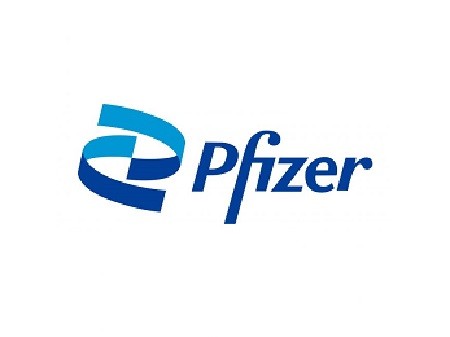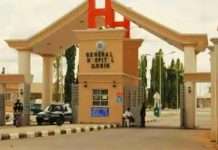-Says Nigeria and Ghana leading in breast cancer globally

In its quest to reduce the incidence of breast cancer among women in Nigeria and Ghana, which are the two countries leading with the condition across the world, Pfizer in collaboration with medical experts held a virtual sensitization media roundtable, to raise awareness about the condition as well as equip patients with right knowledge on the prevention and proper treatment of the disease.
Breast cancer is the commonest cancer among women in Nigeria and Ghana, as it accounted for 22.7% of new cancer cases in Nigeria and 18.7% of new ones in Ghana in 2020, according to the Globocan study. Pfizer, in commemoration of Breast Cancer Awareness Month and Metastatic Breast Cancer Day, which falls on 13 October of every year, seized the opportunity to create greater awareness around Metastatic Breast Cancer, as the most advanced stage of breast cancer.
The roundtable, attended by two reputable medical professionals from Nigeria and Ghana, addressed local metastatic breast cancer incidence, diagnosis, risks involved, steps in fighting breast cancer, setting the right expectation, as well as latest treatment advances of the condition. The experts emphasised that although great progress has been made in the treatment and care of breast cancer, but there is still a lot more work to be done.
They agreed that this is especially true within underserved and hard-to-reach communities in places, too often, experience critical gaps in their care. They maintained that timely access, affordable treatment options, expansion of resources and programmes that address current disparities across age, race, gender, and location can remove barriers that stand in the way of the most vulnerable people with breast cancer.
 The Globocan study shows that over 247,000 people across Africa and the Middle East (AfME) are affected with breast cancer, as experts advocate early-stage detection, which prevents cancer cells from spreading beyond the breast or axillary lymph nodes. However, in AfME, 50-60 % of breast cancer patients are in locally advanced or advanced stages at initial diagnosis. Whereas metastatic breast cancer is the most advanced stage of breast cancer, and it occurs when cancer spreads to other parts of the body, such as the lung, brain, liver, and bones.
The Globocan study shows that over 247,000 people across Africa and the Middle East (AfME) are affected with breast cancer, as experts advocate early-stage detection, which prevents cancer cells from spreading beyond the breast or axillary lymph nodes. However, in AfME, 50-60 % of breast cancer patients are in locally advanced or advanced stages at initial diagnosis. Whereas metastatic breast cancer is the most advanced stage of breast cancer, and it occurs when cancer spreads to other parts of the body, such as the lung, brain, liver, and bones.
In her presentation, Dr Hannah Ayettey Anie, National Radiotherapy Oncology and Nuclear Medicine Centre, Ghana, affirmed that: “Most women diagnosed with breast cancer do not have any signs or symptoms of the disease. However, there are changes in the breast that some women do not notice. Therefore, it is hard to overestimate the importance of conducting self-examination and going for regular check-ups.
“While each case is unique, age, certain genetic mutations (like BRCA1 and BRCA2), getting periods before age 12 or starting menopause after age 55, having dense breasts, and family history are all known risk factors. With better awareness, prevention, treatment, and access to diagnostics, early detection could save between 2.4 and 3.7 million lives each year globally”.
Also present at the virtual media parley was Dr Kodjo Soroh, medical director, Sub-Saharan Africa, Pfizer, who hinted on the multinational pharma company’s efforts in increasing breast cancer awareness in Sub-Saharan Africa, in order to change the narratives in prevalence. He further called for more awareness creation on the condition, which would lead to early detection and reduction in maternal mortality.
He remarked: “At Pfizer, we remain committed to improving patients’ lives and supporting them at each step of their breast cancer experience. Across the region, patients are diagnosed with late or advanced-stage cancer at a higher incidence rate than other regions globally. There is a distinct need for more awareness campaigns to regularly encourage patients to check themselves for breast cancer and better understand the disease. Moreover, over the past decade, improved diagnostics, and newer treatment options for late-stage breast cancer, include those with different gene abnormalities, offer new horizons and hope for these patients.
“We feel a deep obligation to advocate for people with breast cancer at every stage of their disease. Through our partnerships and programmes, we continue to create access to better screening services, clinical trials, treatment options and extended support to mental health and financial resources more so during life’s unexpected events, such as COVID-19”, he added.
A Professor of Radiology, College of Medicine, University of Nigeria, Nsukka, Ifeoma Joy Okoye, spoke on the essence of giving right information to breast cancer patients during treatment, as this would give them better understanding of their conditions and make them fully involved in their own care procedures.
“It is crucial for patients who have been diagnosed with breast cancer or even metastatic breast cancer to have the right information and expectations. It is our duty to encourage them to have open conversations with their healthcare teams to understand how they can be supported but also how they can participate in their own care – taking an active role in their treatment can help them feel empowered in making the best decisions for themselves”, she asserted.











[…] Read more here. […]